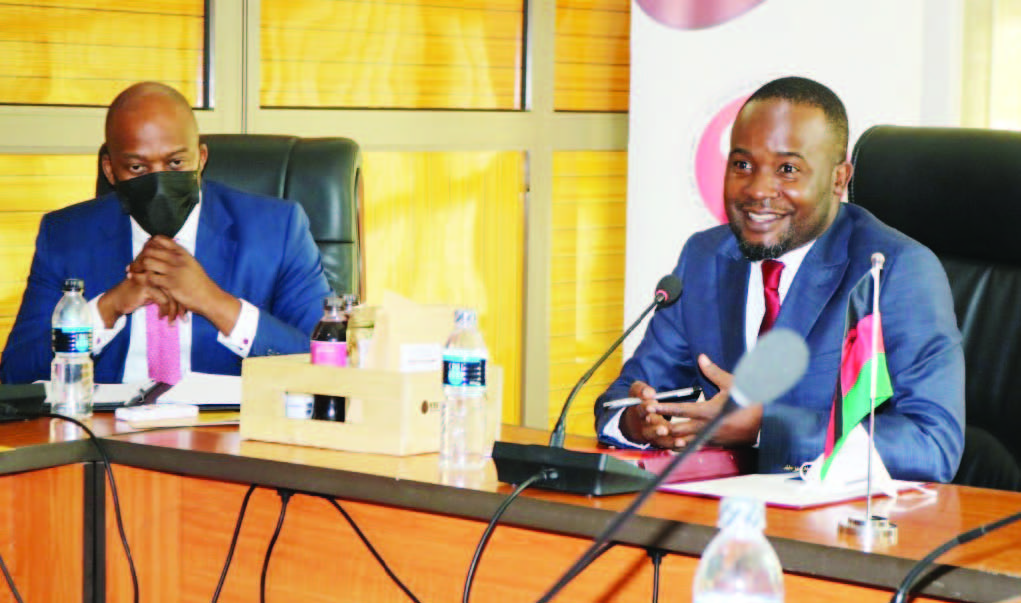Free trade area debate rages on
African Continental Free Trade Area (AfCFTA) secretary general Wamkele Mene says Malawi has sufficient natural resources to compete favourably in the continental free trade area by taking advantage of existing value chains.
Speaking on Wednesday in Lilongwe at the end of his visit to Malawi, the official said the AfCFTA resonates well with Malawi 2063, the country’s long-term development plan, especially on attaining an industrialised economy.

During the visit, Mene held meetings with President Lazarus Chakwera, Minister of Trade Sosten Gwengwe and private sector representatives to discuss progress made since the AfCFTA secretariat was established earlier this year.
He said the benefits Malawi will accrue from the trade window are long-term, stressing that there are no immediate benefits just like for any other country.
Said Mene: “With the establishment of regional value chains and access to new markets in North, East and West Africa, the opportunity is there for Malawi to move beyond Sadc [Southern African Development Community] in terms of its export diversification and benefit from this large market through industrialisation and value-added production.”
He said there are opportunities in Malawi through AfCFTA, a market of 1.2 billion people and combined gross domestic product of $3.4 trillion, to accelerate processing of export products such as tobacco, which is key in expanding the market outside Sadc.
Mene said during his meeting with the private sector, he sampled value-added products which he said have potential to penetrate the continental market.
He assured the private sector not to be afraid of participating in AfCFTA, saying there are rules that prevent anti-competitive behaviour, dumping of products and subsidised products to protect small and medium enterprises (SMEs).
Mene said AfCFTA is working with African Export and Import Bank (Afreximbank) to sort out trade finance needs for the private sector, which is a concern especially for SMEs to ensure that they equally participate in the larger market.
His meeting with the private sector also addressed Malawi’s AfCFTA implementation strategy and how the private sector, particularly SMEs, can take advantage of the continental value chains.
In a statement, Minister of Trade Sosten Gwengwe said to realise the objectives of AfCFTA, the secretariat should consider issues of non-tariff barriers.
He said it is common practice for countries to introduce protectionist measures in free trade arrangements where the liberty of tariffs is eroded.
Gwengwe also urged AfCFTA secretariat to look into issues of transit, transport networks and distribution logistics across Africa, which are ideal enablers to effective realisation of the AfCFTA benefits.
He said: “The importance of producing value-added products to be traded among ourselves is crucial as this leads to industrialisation of a country.
“Therefore, encourage and fast-track progress relating to industrialisation programme.”
Earlier, Public Private Dialogue Forum chairperson Vizenge Kumwenda, who is also Nico Holdings plc managing director, said the private sector is upbeat on intra-Africa trade as AfCFTA presents limitless opportunities for Malawi.
“AfCFTA is calling on investors and the private to operate beyond the national boundaries and this is something the private sector is not used to,” he said.
Malawi ratified the AfCFTA earlier this year, where 54 African member States will be trading among each other with reduced or removed taxes on certain products.





